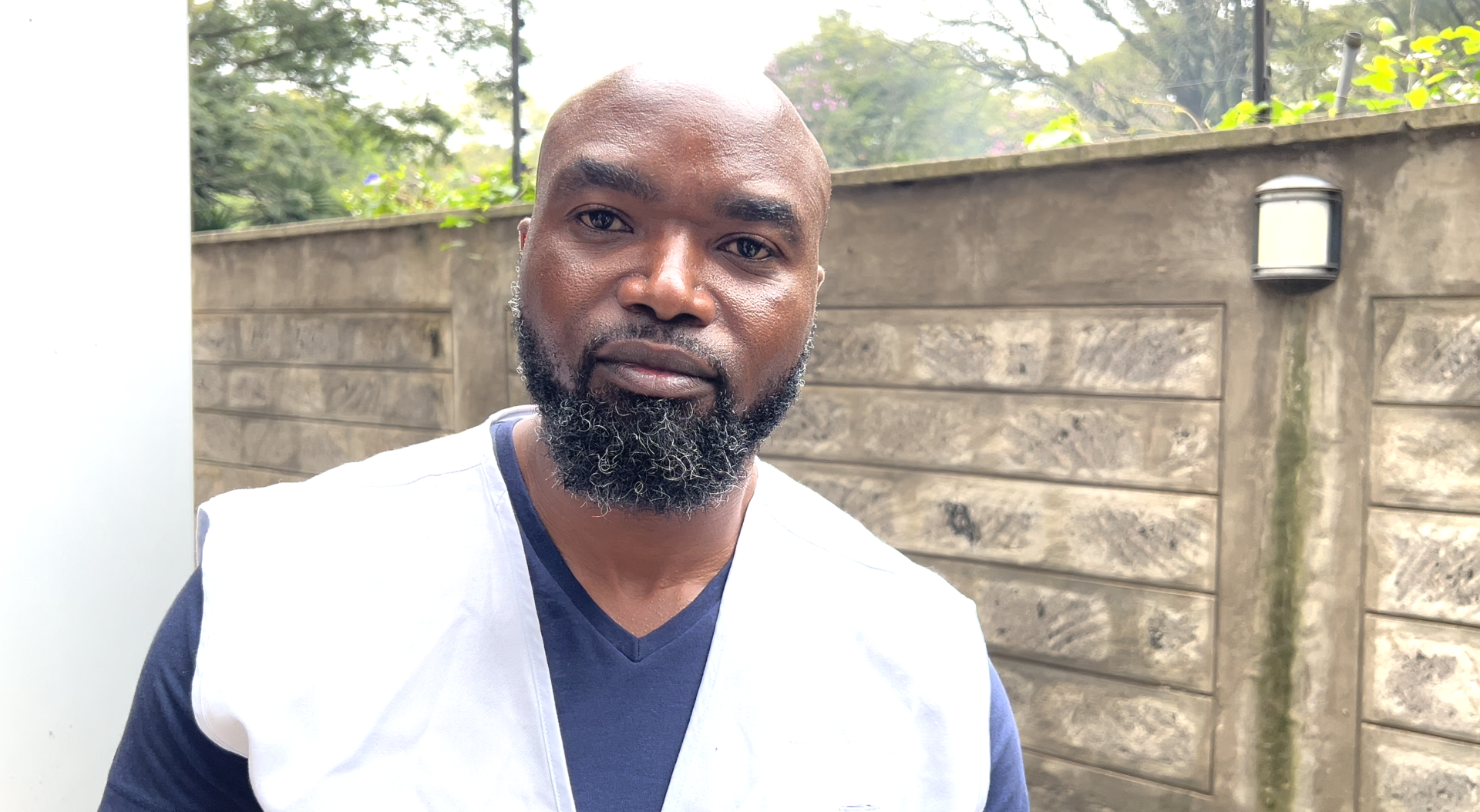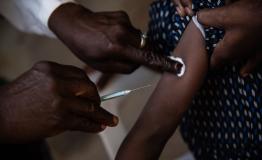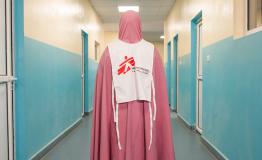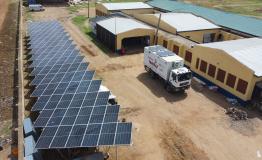My name is Dennis Kimathi Mbae, and I have spent the last two decades working with Médecins Sans Frontières/Doctors Without Borders (MSF). I’m currently working in Nigeria, working as a project coordinator responsible for emergency responses across the Northern part of Nigeria. My role has involved coordinating emergency responses in various countries, navigating complex landscapes, and witnessing firsthand the impact of crises on vulnerable populations. My humanitarian work has taken me across the continent – I’ve worked from responding to cholera outbreaks in Kenya, to the Ebola epidemic in Uganda, and catastrophic levels of malnutrition and recurrent outbreaks of preventable diseases in northwest Nigeria.
Emergencies like cholera and Ebola outbreaks, while primarily medical concerns, can become highly politicised. But, as a humanitarian organization, our focus is always to help the people affected, advocating for the necessary interventions while maintaining our neutrality and impartiality.
We carefully assess the situation, identifying where our intervention can have the greatest impact. Whether it's a region affected by conflict, a health crisis, or natural disaster, we strive to be present where our expertise can save the most lives. By identifying these areas of critical need, we can allocate our resources most effectively.
By anticipating potential crises and implementing proactive measures, we can often avert large-scale suffering. Technology has played a pivotal role in enhancing our emergency response capabilities. Mobile phones have become indispensable tools for tracking patients, reporting cases, and collecting data. This real-time information allows us to analyse situations swiftly and implement effective strategies. Moreover, technology has revolutionised communication, enabling us to coordinate efforts more efficiently, disseminate vital information promptly, raise awareness, mobilize resources, and advocate for timely action. Also, this technology empowers communities to participate actively in the response efforts and facilitates faster decision-making.
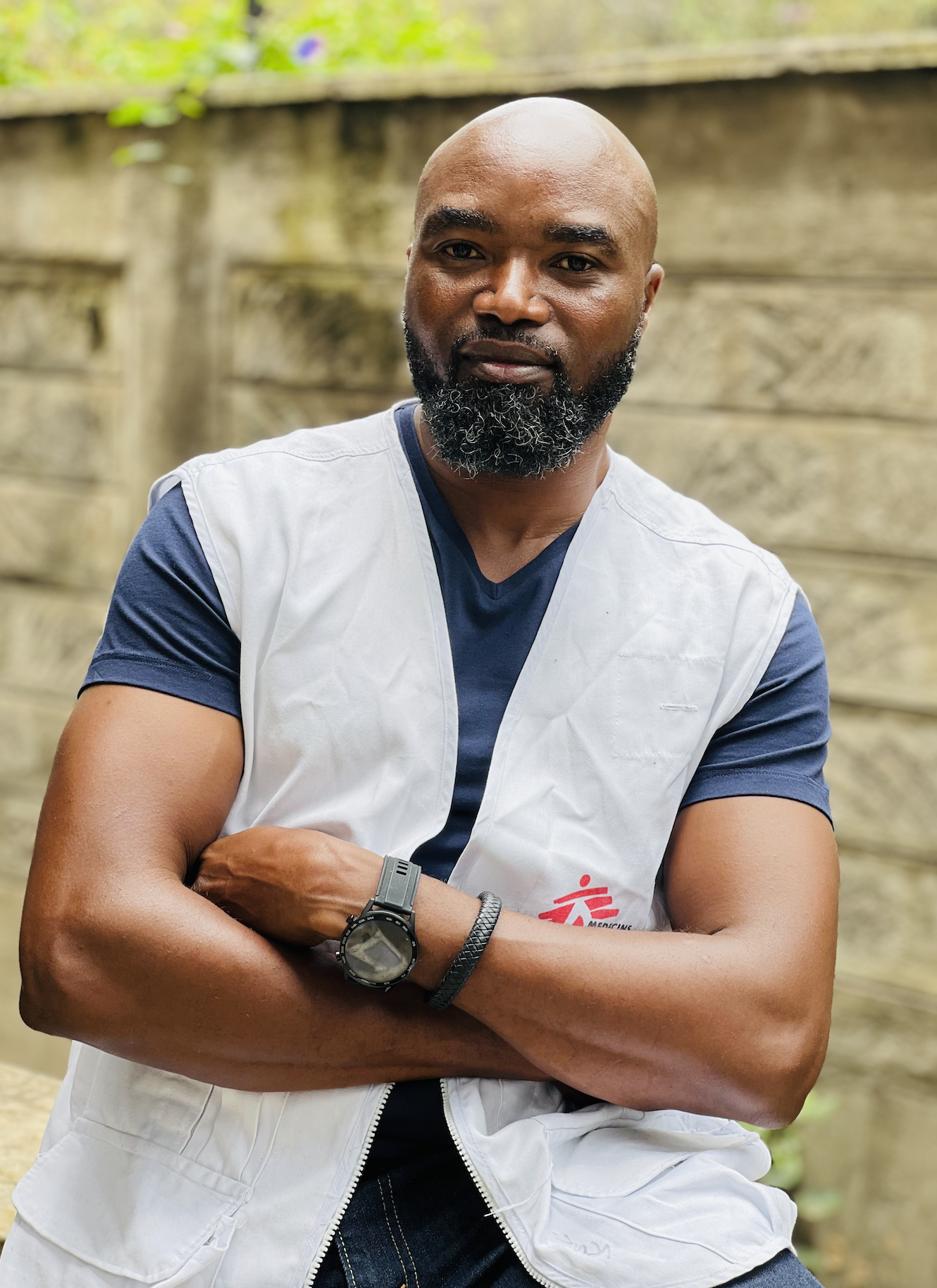
One of the biggest challenges we face is balancing the need for rapid response with ensuring the safety and well-being of our staff. In epidemics like Ebola, where the disease is highly contagious, it’s the job of our medical teams to assess the risks and implement protective measures, such as using Personal Protective Equipment (PPE) kits. When it comes to security risks, especially in conflict zones, our rule is clear: the safety of our frontline staff is paramount. MSF cannot exist without its people, so if an area is deemed too dangerous, we may choose not to respond. However, we always communicate these decisions transparently to ensure that everyone understands the risks involved.
The success of an emergency response often hinges on several key factors; timing, coordination, and the skills of the team involved. MSF’s ability to mobilise resources quickly is one of our greatest strengths. From the moment an emergency is declared, we aim to respond as swiftly as possible. Coordination is also critical; even when resources are scarce, effective coordination can make a significant difference, among humanitarian organisations, government agencies, and local communities is very essential. Skilled human resources are equally important—having a team that is both knowledgeable and experienced can mean the difference between life and death in a crisis.
Cross-border emergencies, such as the Ebola outbreak in Uganda or mpox in the Democratic Republic of Congo (DRC), present unique challenges. These situations require close coordination between MSF, local health authorities, and other humanitarian organisations. During the Ebola outbreak in Uganda, for example, MSF worked alongside government agencies – most importantly the Ministry of Health - and other international teams to manage the response. Our role often involvescaring for patients, while governments typically handle surveillance and tracking. This collaborative approach is essential for managing such complex emergencies effectively.
Working in emergency response is both challenging and rewarding. I have witnessed firsthand the devastating impact of emergencies on vulnerable populations. The sight of malnourished children, injured civilians, and families torn apart by conflict is a constant reminder of the human cost of these crises. Yet, amidst the despair, there is also hope. When we provide timely assistance, save lives, and alleviate suffering, it is a deeply rewarding experience
The problems we face are immediate, and the results of our actions are often visible almost instantly. These are the moments that make the work so fulfilling when you can see the direct impact of your efforts.
However, the job also comes with its share of emotional tolls. The most challenging situations are those involving mass casualties, where you’re confronted with the stark reality of conflict or natural disasters. Seeing people wounded and bleeding, with limited resources to help them all, is difficult. The psychological impact is profound; it’s a reminder that even though we are trained and experienced humanitarian workers, we are still human.
Despite the challenges, I remain committed to the humanitarian cause. Every day, I am inspired by the resilience of the people we serve and the dedication of my colleagues. I am grateful for the opportunity to make a difference in the lives of those affected by crises.
To anyone considering a career in humanitarian work, I would say: Join us. MSF offers a unique and fulfilling path where you can make a tangible difference in the world. Check out our website, learn more about what we do, and if you feel called to this kind of challenging but rewarding work, join our team. Our work is demanding but incredibly satisfying. In the heart of every crisis lies an opportunity to make a difference, and in the face of every challenge, a chance to redefine humanity, and contribute to building a more just and equitable future. Together, we can continue to bring hope and healing to those who need it most.
